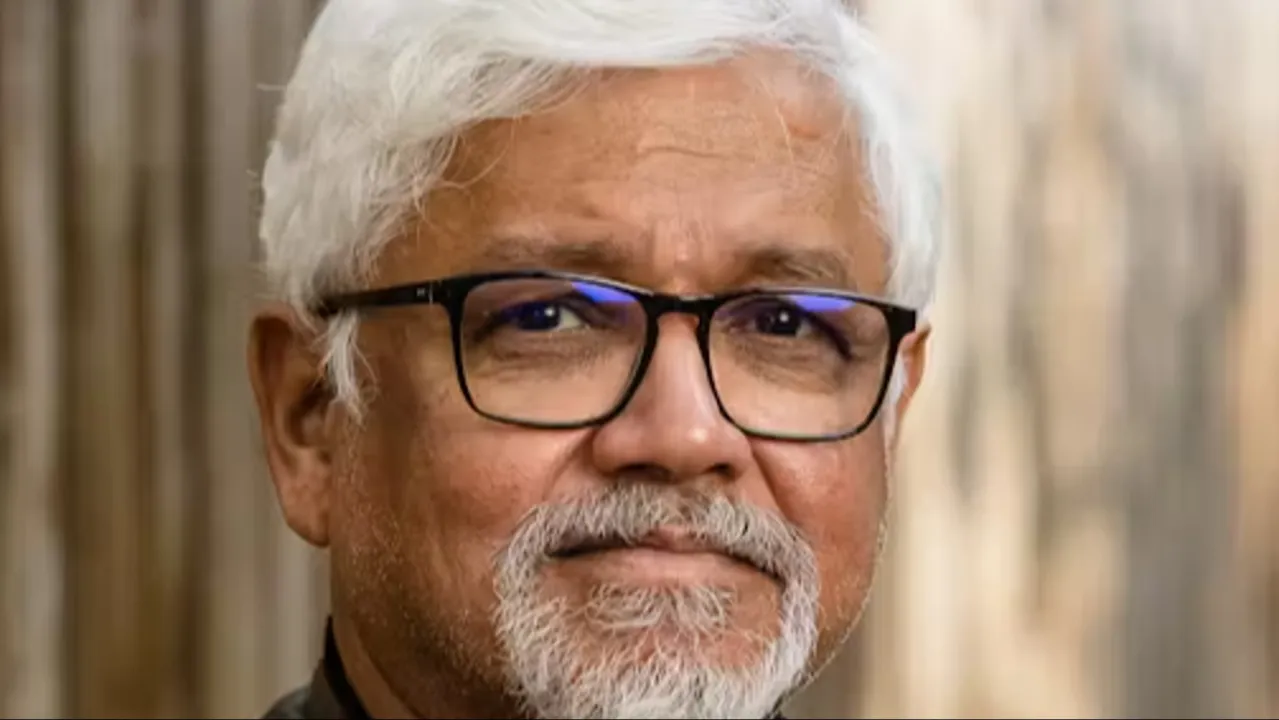DON'T MISS ANYTHING!
Subscribe to our newsletter
Lorem ipsum dolor sit amet, consectetur adipiscing elit.
Listeners:
Top listeners:
LISTEN NOW: JafriQ Radio Live On Jafriq Radio

[ad_1]
Amitav Ghosh is an internationally celebrated author of 20 historical fiction and non-fiction books. The Indian thinker and writer has written extensively on the legacies of colonialism, violence and extractivism. His most famous works explore migration, globalisation and commercial violence and conquest during the colonial period, against the backdrop of the opium trade in the 1800s.
Caroline Southey, from The Conversation Africa, asked economics professor Imraan Valodia and climate and inequality researcher Julia Taylor about the significance of his work.
What has Ghosh contributed to our understanding about the root causes of climate change?
Julia Taylor: In Ghosh’s recent non-fiction book, The Nutmeg’s Curse: Parables for a Planet in Crisis, he used his storytelling prowess to outline the roots of climate change within two systems of power and oppression: imperialism and capitalism.
Imperialism is the expansion of influence over other countries through military force and colonisation. It usually entails the destruction of the environment to support imperial interests.
Capitalism is the dominant economic system where ownership of the means of production (industry) is private. Private actors are driven by profit and growth, which has relied on combustion of fossil fuels.
What Ghosh makes clear is that violence and destruction of the environment are key to capitalism, as they were to colonialism.
Imraan Valodia: Ghosh challenges us to think more deeply about the role of conquest and violence in shaping the planetary crisis we’re facing. And the need to reshape our economic and social relations to address climate change. He does this with remarkable acumen and clarity in another of his works of non-fiction, The Great Derangement. In the book he seeks to explain our failure to address the urgency of climate change. He asks very powerfully whether the current generation is deranged by our inability to grasp the scale, violence and urgency of climate change.
He uses the history of nutmeg to illustrate some of his main points. What does he draw from this history?
Julia Taylor: The story of the nutmeg is one among many of conquest of both people and land during colonisation which led to the industrial revolution and the explosion of greenhouse gas emissions.
In the present day these conquests take different forms. But they continue, particularly in the context of mining and extractivism.
Imraan Valodia: Ghosh traces the history of the household spice – nutmeg – all the way to its origins in the Banda Islands of Indonesia. He uses the analogy of the nutmeg to explain how colonisation of land and people has led to the climate disaster.
The nutmeg was harvested from trees in the Banda Islands and traded by the Bandanese for centuries. With the growth in value of spices, various European countries sought to claim exclusive rights to the nutmeg trade in the Banda Islands. The local population resisted. However, in 1621, representatives of the Dutch East India Company chose to destroy the settlements of the Bandanese population and massacre or enslave anyone who could not escape, to gain control over the nutmeg trade.
Ghosh explains these horrifying events in the context of Anglo-Dutch tensions and the trend of empire in Europe, sanctioned by religious beliefs of racial superiority.
A major theme of his work is the link between imperialism and the planetary crisis. What’s his main line of argument?
Julia Taylor: Ghosh argues in The Nutmeg’s Curse: Parables for a Planet in Crisis that
the discussion of climate change, as of every aspect of the planetary crisis, tends to be dominated by the question of capitalism and other economic issues; geopolitics, empire, and questions of power figure in it far less. (p116)
However, he highlights that
the era of Western military conquests predates the emergence of capitalism by centuries. Indeed, it was these conquests, and the imperial systems that arose in their wake, that fostered and made possible the rise to dominance of what we now call capitalism … colonialism, genocide and structures of organised violence were the foundations on which industrial modernity was built. (p116)
Imraan Valodia: This argument forces us to grapple with both capitalism and the dominance of the west in our understanding of climate change. It highlights the power dynamics and violence which enabled the destruction of many lands in the form of deforestation, industrial agriculture, mining and more.

Get the latest in African news delivered straight to your inbox
Almost finished…
We need to confirm your email address.
To complete the process, please follow the instructions in the email we just sent you.
There was a problem processing your submission. Please try again later.
To respond to climate change, we need to rethink these dominant systems and relationships with land and the environment. This can be linked to the need to address inequality and power dynamics if we are to have any hope of addressing climate change.
Professor Valodia will be hosting Amitav Ghosh for a series of events at the University of the Witwatersrand in South Africa from 10 to 12 September 2024. The university has partnered with the Presidential Climate Commission, the Wits Institute for Social and Economic Research (WiSER) and the University of Pretoria to host the sessions.
Julia Taylor, Researcher: Climate and Inequality, University of the Witwatersrand
Imraan Valodia, Pro Vice-Chancellor: Climate, Sustainability and Inequality and Director: Southern Centre for Inequality Studies., University of the Witwatersrand
[ad_2]
Written by: jafriqradio
africa and Africa Asia Australia Business Canada and Africa Climate current events economy Environment Europe and Africa External Relations Human Rights Latin America and Africa news Politics sports trade travel United States

For every Show page the timetable is auomatically generated from the schedule, and you can set automatic carousels of Podcasts, Articles and Charts by simply choosing a category. Curabitur id lacus felis. Sed justo mauris, auctor eget tellus nec, pellentesque varius mauris. Sed eu congue nulla, et tincidunt justo. Aliquam semper faucibus odio id varius. Suspendisse varius laoreet sodales.
closeLorem ipsum dolor sit amet, consectetur adipiscing elit.
© JAfriq RAdio 2024 All Rights Reserved. By Octagram, Inc
Post comments (0)